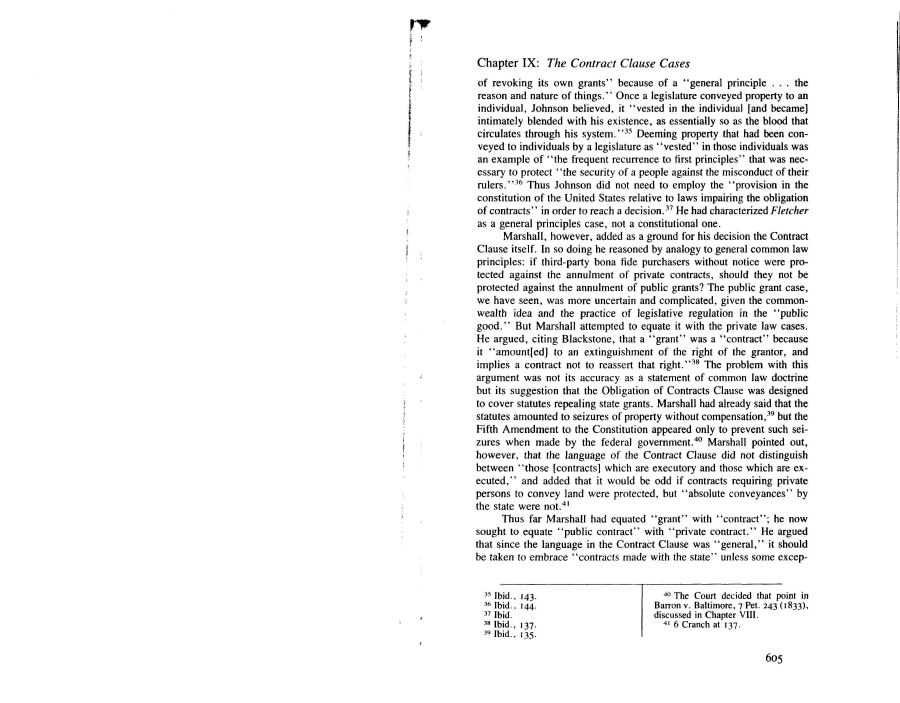|
Chapter IX: The Contract Clause Cases
of revoking its own grants" because of a "general principle . . . the
reason and nature of things." Once a legislature conveyed property to an
individual, Johnson believed, it "vested in the individual [and became]
intimately blended with his existence, as essentially so as the blood that
circulates through his system."35 Deeming property that had been con-
veyed to individuals by a legislature as "vested" in those individuals was
an example of "the frequent recurrence to first principles" that was nec-
essary to protect "the security of a people against the misconduct of their
rulers."36 Thus Johnson did not need to employ the "provision in the
constitution of the United States relative to laws impairing the obligation
of contracts" in order to reach a decision.37 He had characterized Fletcher
as a general principles case, not a constitutional one.
Marshall, however, added as a ground for his decision the Contract
Clause itself. In so doing he reasoned by analogy to general common law
principles: if third-party bona fide purchasers without notice were pro-
tected against the annulment of private contracts, should they not be
protected against the annulment of public grants? The public grant case,
we have seen, was more uncertain and complicated, given the common-
wealth idea and the practice of legislative regulation in the "public
good." But Marshall attempted to equate it with the private law cases.
He argued, citing Blackstone, that a "grant" was a "contract" because
it "amounted] to an extinguishment of the right of the grantor, and
implies a contract not to reassert that right."38 The problem with this
argument was not its accuracy as a statement of common law doctrine
but its suggestion that the Obligation of Contracts Clause was designed
to cover statutes repealing state grants. Marshall had already said that the
statutes amounted to seizures of property without compensation,39 but the
Fifth Amendment to the Constitution appeared only to prevent such sei-
zures when made by the federal government.40 Marshall pointed out,
however, that the language of the Contract Clause did not distinguish
between "those [contracts] which are executory and those which are ex-
ecuted," and added that it would be odd if contracts requiring private
persons to convey land were protected, but "absolute conveyances" by
the state were not.41
Thus far Marshall had equated "grant" with "contract"; he now
sought to equate "public contract" with "private contract." He argued
that since the language in the Contract Clause was "general," it should
be taken to embrace "contracts made with the state" unless some excep-
35 Ibid., 143.
36 Ibid., 144.
37 Ibid.
38 Ibid., 137.
39 Ibid., 135.
40 The Court decided that point in
Barren v. Baltimore, 7 Pet. 243 (1833),
discussed in Chapter VIII.
41 6 Cranch at 137.
605
|

